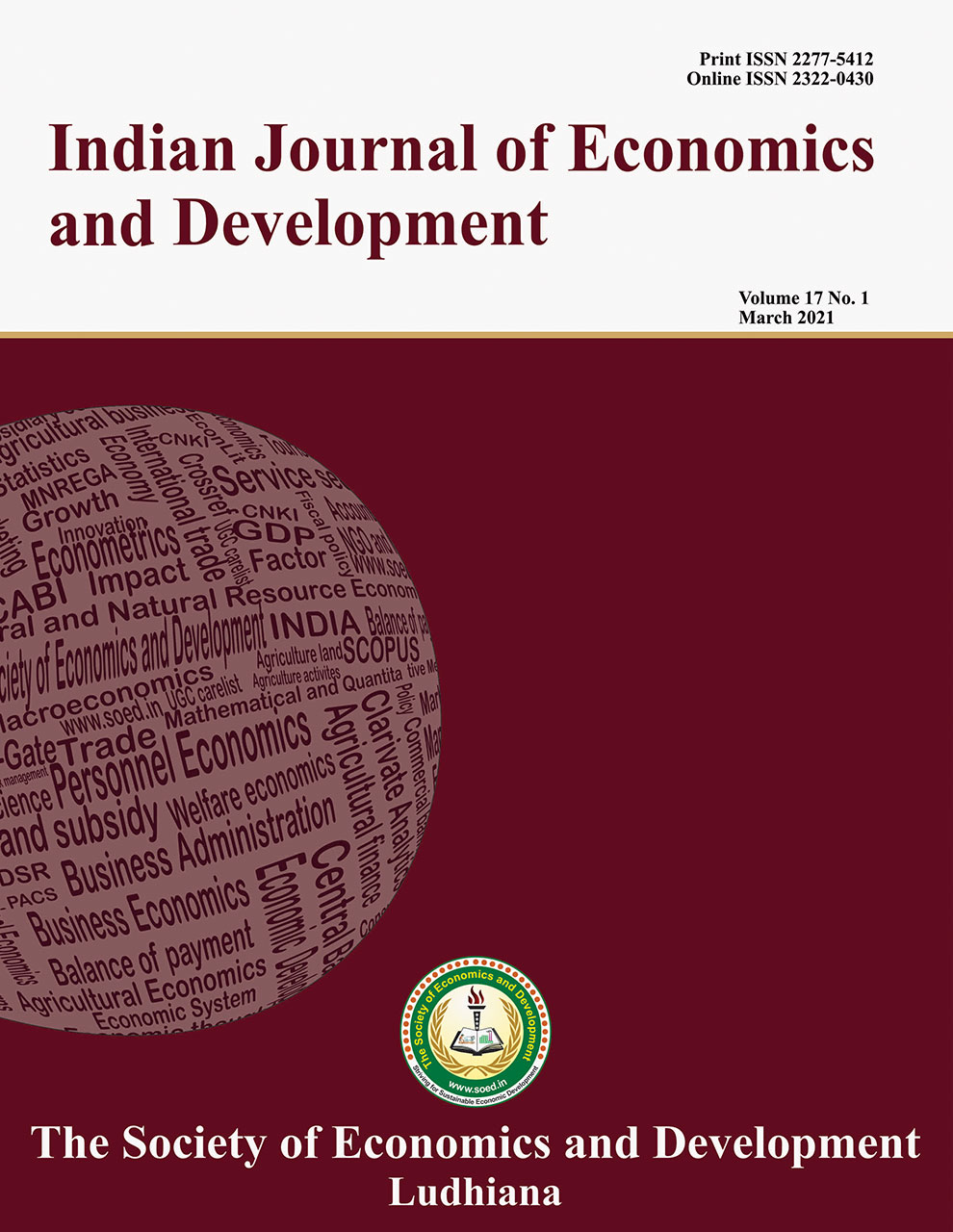Instability and Production Scenario of Wheat Production in Uttar Pradesh using ARIMA Model and its Role in Food Security

Price: ₹ 500
Author: Aditya Bhooshan Srivastava , Supriya , Pradeep Mishra , K.K. Singh and Harendra Pratap Singh Choudhri
Author Address: Department of Agricultural Economics, Acharya Narendra Deva University of Agriculture and Technology, Kumarganj, Ayodhya-224229 (Uttar Pradesh) and College of Agriculture, Powarkheda, Jawaharlal Nehru Krishi Vishwavidyalaya, 2 Jabalpur-461110 (M.P.)
Keywords: Area, ARIMA, forecasting, instability, modelling, production, yield.
JEL Codes: C22, C52, C53, C55.
Abstract
The main aim of this study was to assist different sectors such as producers, government, and policymakers in understanding the necessary action. Forecasting is very helpful to make decisions and minimize the risk in production. In this study, the ARIMA model was used to predict wheat's area, display, and yield in Uttar Pradesh. For this, yearly data from 1950 to 2018 were used for model fitting and forecasting up to 2025. The best fit ARIMA models were selected based on autocorrelation function and partial autocorrelation function at various lags. Forecasting performances of this model was selected based on their minimum AIC, RMSE, MAE, MAPE, and maximum R values. Model parameters were estimated by using the Gretl software and Microsoft Excel. 2 Empirical results showed that ARIMA (1,1,5) model for area, ARIMA (1,1,4) model for roduction, and ARIMA p (0,1,5) for yield model was found suitable to forecast the future of wheat in Uttar Pradesh with a 95 per cent accuracy level. Furthermore, according to the instability analysis, Uttar Pradesh had somewhat low instability in terms of area and yield but slightly high insta
Description
Indian Journal of Economics and Development
Volume 18 No. 1, 2022, 181-188
DOI: https://doi.org/10.35716/IJED/21320
NAAS Score: 5.15
Indexed in Clarivate Analytics (ESCI) of WoS
Indexed in Scopus
UGC Approved



